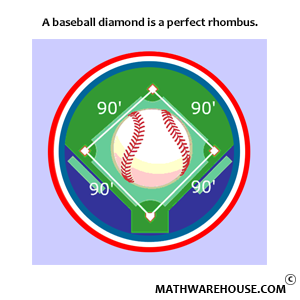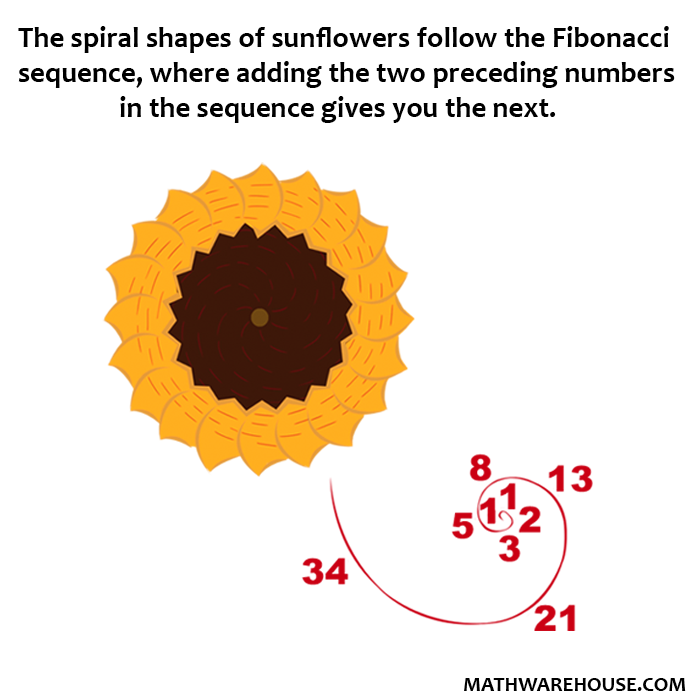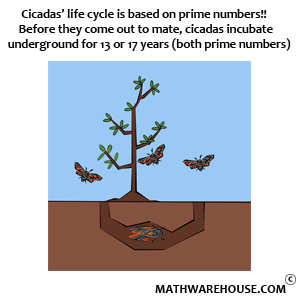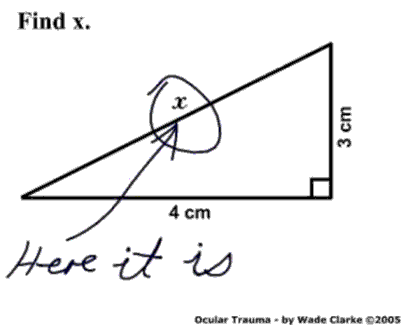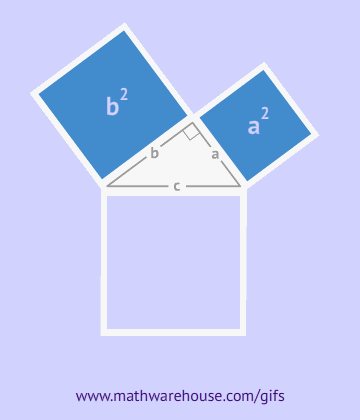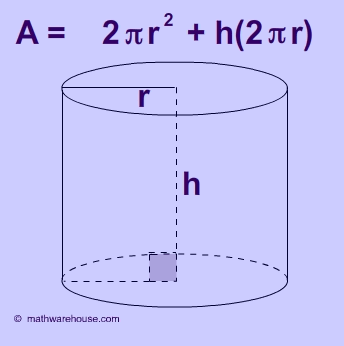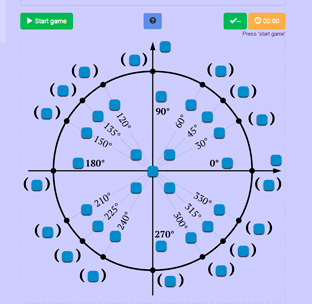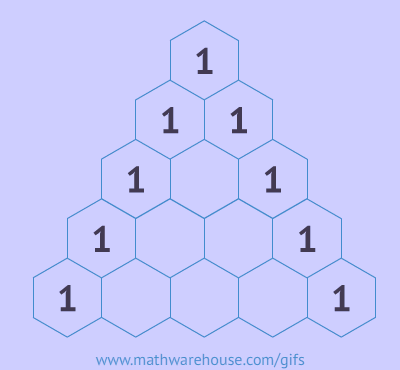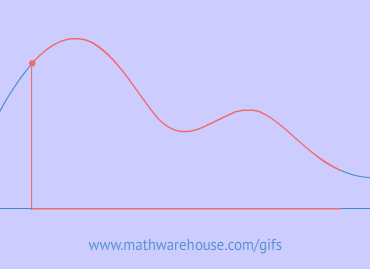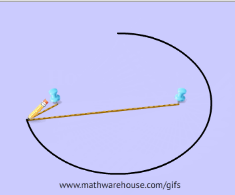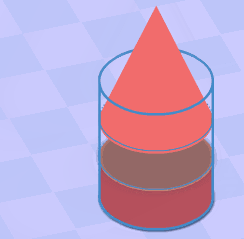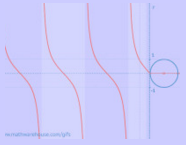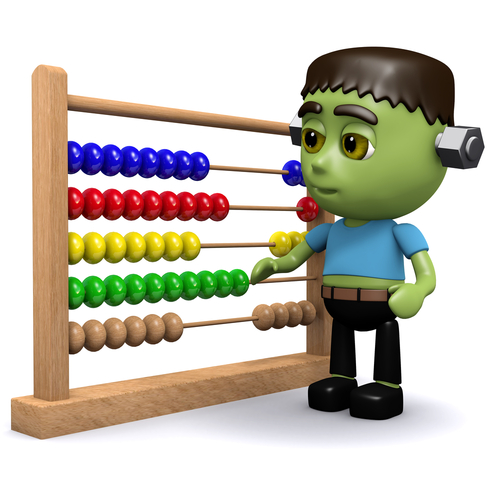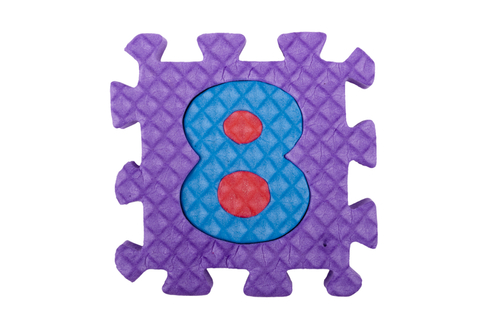Apply the logarithm to the equation.
$$ \ln y = \ln\left(\sin x\right)^x $$
Expand the right-hand side using the properties of logarithms.
$$ \ln y = x\cdot\ln(\sin x) $$
Differentiate the equation and solve for $$y'$$
Note that the left-hand side requires implicit differentiation and the right-hand side requires the product rule.
$$ \begin{align*} \frac 1 y\cdot y' & = (1)\ln(\sin x) + x\cdot \frac 1 {\sin x}\cdot \frac d {dx}\left(\sin x\right)\\[6pt] \frac 1 y\cdot y' & = \ln(\sin x) + x\cdot \frac 1 {\sin x}\cdot \cos x\\[6pt] \frac 1 y\cdot y' & = \ln(\sin x) + x\cdot \frac{\cos x}{\sin x}\\[6pt] \frac 1 y\cdot y' & = \ln(\sin x) + x\cot x\\[6pt] y' & = y\left(\ln \sin x + x\cot x\right) \end{align*} $$
Replace $$y$$.
$$ y' = (\sin x)^x\left(\ln \sin x + x\cot x\right) $$
$$\displaystyle y' = (\sin x)^x\left(\ln \sin x + x\cot x\right)$$
Apply the logarithm to the equation.
$$ \ln y = \ln\left(x^{\cos x}\right) $$
Use the properties of the logarithm to expand the right-hand side.
$$ \ln y = \cos x\cdot\ln x $$
Differentiate the equation and solve for $$y'$$.
Note that the left-hand side requires implicit differentiation and the right-hand side requires the product rule.
$$ \begin{align*} \frac 1 y\cdot y' & = -\sin x\cdot \ln x + \cos x\cdot \frac 1 x\\[6pt] y' & = y\left(\frac{\cos x} x - \sin x \ln x\right) \end{align*} $$
Replace $$y$$.
$$ \begin{align*}% y' & = y\left(\frac{\cos x} x - \sin x \ln x\right)\\[6pt] & = x^{\cos x}\left(\frac{\cos x} x - \sin x \ln x\right) \end{align*} $$
$$\displaystyle y' =x^{\cos x}\left(\frac{\cos x} x - \sin x \ln x\right)$$
Apply the logarithm to the equation.
$$ \ln y = \ln\left(x^{\sqrt x}\right) $$
Expand the right-hand side of the equation using the properties of logarithms.
$$ \ln y = \sqrt x\cdot \ln x = x^{1/2}\cdot \ln x $$
Differentiate and solve for $$y'$$.
Note that the left-hand side requires implicit differentiation and the right-hand side requires the product rule.
$$ \begin{align*} \frac 1 y \cdot y' & = \frac 1 2 x^{-1/2}\cdot \ln x + x^{1/2}\cdot \frac 1 x\\[6pt] \frac 1 y \cdot y' & = \frac 1 {2x^{1/2}}\cdot \ln x + \frac 1 {x^{1/2}}\\[6pt] \frac 1 y \cdot y' & = \frac{\ln x}{2\sqrt x}+ \frac 1 {\sqrt x}\\[6pt] \frac 1 y \cdot y' & = \frac{\ln x}{2\sqrt x}+ \frac 2 {2\sqrt x}\\[6pt] \frac 1 y \cdot y' & = \frac{2 + \ln x}{2\sqrt x}\\[6pt] y' & = y\left(\frac{2 + \ln x}{2\sqrt x}\right) \end{align*} $$
Replace $$y$$.
$$ \begin{align*} y' & = y\left(\frac{2 + \ln x}{2\sqrt x}\right)\\[6pt] & = x^{\sqrt x}\left(\frac{2 + \ln x}{2\sqrt x}\right) \end{align*} $$
$$\displaystyle y' = x^{\sqrt x}\left(\frac{2 + \ln x}{2\sqrt x}\right)$$
Apply the logarithm to the equation.
$$ \ln y = \ln\left(x^{\ln x}\right) $$
Expand the right-hand side using the properties of logarithms.
$$ \begin{align*}% \ln y & = \ln x\cdot \ln x\\[6pt] & = \left(\ln x\right)^2 \end{align*} $$
Differentiate and solve for $$y'$$.
Note that the left-hand side requires implicit differentiation.
$$ \begin{align*} \frac 1 y\cdot y' & = 2\left(\ln x\right)\cdot \frac d {dx}\left(\ln x\right)\\[6pt] \frac 1 y\cdot y' & = 2\left(\ln x\right)\cdot \frac 1 x\\[6pt] y' & = y\left(\frac{2\ln x} x\right) \end{align*} $$
Replace $$y$$.
$$ \begin{align*} y' & = y\left(\frac{2\ln x} x\right)\\[6pt] & = x^{\ln x}\left(\frac{2\ln x} x\right)\\[6pt] \end{align*} $$
$$\displaystyle y' = x^{\ln x}\left(\frac{2\ln x} x\right)$$
Apply the logarithm to the equation.
$$ \ln y = \ln\left(\ln x\right)^x $$
Expand the right-hand side of the equation using the properties of logarithms.
$$ \ln y = x\cdot \ln\left(\ln x\right) $$
Differentiate and solve for $$y'$$.
Note that the left-hand side requires implicit differentiation and the right-hand side requires the product rule.
$$ \begin{align*} \frac 1 y \cdot y' & = (1)\cdot \ln\left(\ln x\right) + x\cdot \frac 1 {\ln x}\cdot \frac d {dx}\left(\ln x\right)\\[6pt] \frac 1 y \cdot y' & = \ln\left(\ln x\right) + \frac x {\ln x}\cdot \frac 1 x\\[6pt] \frac 1 y \cdot y' & = \ln\left(\ln x\right) + \frac 1 {\ln x}\\[6pt] y' & = y\left(\ln\left(\ln x\right) + \frac 1 {\ln x}\right) \end{align*} $$
Replace $$y$$.
$$ \begin{align*} y' & = y\left(\ln\left(\ln x\right) + \frac 1 {\ln x}\right)\\[6pt] & = \left(\ln x\right)^x\cdot \left(\ln\left(\ln x\right) + \frac 1 {\ln x}\right) \end{align*} $$
$$ \displaystyle y' = \left(\ln x\right)^x\cdot \left(\ln\left(\ln x\right) + \frac 1 {\ln x}\right) $$
Apply the logarithm to the equation.
$$ \ln y = \ln\left[(2x)^{3x-1}\right] $$
Expand the right-hand side using the properties of logarithms.
$$ \ln y = (3x-1)\ln(2x) $$
Differentiate and solve for $$y'$$.
Note that the left-hand side requires implicit differentiation and the right-hand side requires the product rule.
$$ \begin{align*} \frac 1 y \cdot y' & = 3\ln(2x) + (3x-1)\cdot \frac 1 {2x} \cdot 2\\[6pt] \frac 1 y \cdot y' & = 3\ln(2x) + \frac{3x-1} x\\[6pt] y' & = y\left(3\ln(2x) + \frac{3x-1} x\right) \end{align*} $$
Replace $$y$$.
$$ \begin{align*} y' & = y\left(3\ln(2x) + \frac{3x-1} x\right)\\[6pt] & = (2x)^{3x-1}\left(3\ln(2x) + \frac{3x-1} x\right) \end{align*} $$
$$\displaystyle y' = (2x)^{3x-1}\left(3\ln(2x) + \frac{3x-1} x\right)$$
Apply the logarithm to the equation.
$$ \ln y = \ln\left(6^{4x}x^3\cot x\right) $$
Expand the right-hand side using the properties of logarithms.
$$ \begin{align*} \ln y & = \ln\left(6^{4x}\right)+ \ln x^3 + \ln \cot x\\[6pt] \ln y & = 4x\ln 6 + 3\ln x + \ln \cot x\\[6pt] \ln y & = (4\ln 6)x + 3\ln x + \ln \cot x \end{align*} $$
Differentiate and solve for $$y'$$.
Note that the left-hand side requires implicit differentiation.
$$ \begin{align*} \frac 1 y \, y' & = 4\ln 6 + 3\cdot \frac 1 x + \frac 1 {\cot x}\cdot \frac d {dx}(\cot x)\\[6pt] \frac 1 y \, y' & = 4\ln 6 + \frac 3 x + \tan x\cdot (-\csc^2 x)\\[6pt] y' & = y\left(4\ln 6 + \frac 3 x - \frac{\sin x}{\cos x}\cdot \frac 1 {\sin^2 x}\right)\\[6pt] & = y\left(4\ln 6 + \frac 3 x - \frac 1 {\cos x}\cdot \frac 1 {\sin x}\right)\\[6pt] & = y\left(4\ln 6 + \frac 3 x - \sec x \csc x\right) \end{align*} $$
Replace $$y$$.
$$ \begin{align*} y' & = y\left(4\ln 6 + \frac 3 x - \sec x \csc x\right)\\[6pt] & = 6^{4x}\,x^3\cot x\left(4\ln 6 + \frac 3 x - \sec x \csc x\right) \end{align*} $$
$$\displaystyle y' = 6^{4x}\,x^3\cot x\left(4\ln 6 + \frac 3 x - \sec x \csc x\right)$$
Apply the logarithm to both sides of the equation.
$$ \ln y = \ln\left(\sqrt{x-7}\,\tanh x\arcsin(x^2)\right) $$
Expand the right-hand side using the properties of logarithms.
$$ \begin{align*}% \ln y & = \ln\left((x-7)^{1/2}\,\tanh x\arcsin(x^2)\right)\\[6pt] & = \frac 1 2 \ln\left(x-7\right) + \ln \tanh x+ \ln\arcsin(x^2) \end{align*} $$
Differentiate and solve for $$y'$$.
Note that the left-hand side requires implicit differentiation.
$$ \begin{align*} \frac 1 y\, y' & = \frac 1 2 \cdot \frac 1 {x-7} + \frac 1 {\tanh x}\cdot \frac d {dx}(\tanh x) + \frac 1 {\arcsin(x^2)}\cdot \frac d {dx}(\arcsin(x^2))\\[6pt] \frac 1 y\, y' & = \frac 1 {2(x-7)} + \frac 1 {\tanh x}\cdot (\operatorname{sech}^2 x) + \frac 1 {\arcsin(x^2)}\cdot \frac{2x}{\sqrt{1 - x^4}}\\[6pt] y' & = y\left(\frac 1 {2(x-7)} + \frac{\cosh x}{\sinh x}\cdot \frac 1 {\cosh^2 x} + \frac 1 {\arcsin(x^2)}\cdot \frac{2x}{\sqrt{1 - x^4}}\right)\\[6pt] & = y\left(\frac 1 {2(x-7)} + \frac 1 {\sinh x}\cdot \frac 1 {\cosh x} + \frac 1 {\arcsin(x^2)}\cdot \frac{2x}{\sqrt{1 - x^4}}\right)\\[6pt] & = y\left(\frac 1 {2(x-7)} + \operatorname{sech} x\operatorname{csch} x + \frac 1 {\arcsin(x^2)}\cdot \frac{2x}{\sqrt{1 - x^4}}\right) \end{align*} $$
Replace $$y$$.
$$ \begin{align*} y' & = y\left(\frac 1 {2(x-7)} + \operatorname{sech} x\operatorname{csch} x + \frac 1 {\arcsin(x^2)}\cdot \frac{2x}{\sqrt{1 - x^4}}\right)\\[6pt] & = \sqrt{x-7}\,\tanh x\arcsin(x^2)\left(\frac 1 {2(x-7)} + \operatorname{sech} x\operatorname{csch} x + \frac 1 {\arcsin(x^2)}\cdot \frac{2x}{\sqrt{1 - x^4}}\right) \end{align*} $$
$$ \displaystyle y' = \sqrt{x-7}\,\tanh x\arcsin(x^2)\left(\frac 1 {2(x-7)} + \operatorname{sech} x\operatorname{csch} x + \frac 1 {\arcsin(x^2)}\cdot \frac{2x}{\sqrt{1 - x^4}}\right) $$
Apply the logarithm to the equation.
$$ \ln y = \ln\left(\frac{2^x\sqrt x}{\sqrt{x^2+5}}\right) $$
Expand the right-hand side using the properties of logarithms.
$$ \begin{align*} \ln y & = \ln\left(\frac{2^x\sqrt x}{\sqrt{x^2+5}}\right)\\[6pt] & = \ln\left(2^x\sqrt x\right) - \ln\left(\sqrt{x^2+5}\right)\\[6pt] & = \ln\left(2^x\right) + \ln x^{1/2} - \ln\left(x^2+5\right)^{1/2}\\[6pt] & = x\ln 2 + \frac 1 2\ln x - \frac 1 2\ln\left(x^2+5\right) \end{align*} $$
Differentiate and then solve for $$y'$$.
Note that the left-hand side will require implicit differentiation.
$$ \begin{align*} \frac 1 y\, y' & = \ln 2 + \frac 1 2\cdot \frac 1 x - \frac 1 2\cdot \frac 1 {x^2+5}\cdot 2x\\[6pt] y' & = y\left(\ln 2 + \frac 1 {2x} - \frac x {x^2+5}\right) \end{align*} $$
Replace $$y$$.
$$ \begin{align*} y' & = y\left(\ln 2 + \frac 1 {2x} - \frac x {x^2+5}\right)\\[6pt] & = \frac{2^x\sqrt x}{\sqrt{x^2+5}}\left(\ln 2 + \frac 1 {2x} - \frac x {x^2+5}\right) \end{align*} $$
$$\displaystyle y' = \frac{2^x\sqrt x}{\sqrt{x^2+5}}\left(\ln 2 + \frac 1 {2x} - \frac x {x^2+5}\right)$$
Apply the logarithm to the equation.
$$ \ln y = \ln\left(\frac{5x^2(x^3+9)^{10}}{\tan x\cdot \arctan x}\right) $$
Expand the right-hand side of the equation using the properties of logarithms.
$$ \begin{align*} \ln y & = \ln\left(5x^2(x^3+9)^{10}\right) - \ln\left(\tan x\cdot \arctan x\right)\\[6pt] & = \ln 5 + 2\ln x + 10\ln(x^3+9) - \ln\tan x - \ln \arctan x \end{align*} $$
Differentiate and solve for $$y'$$.
Note that the left-hand side will require implicit differentiation.
$$ \begin{align*} \frac 1 y\, y' & = 2\cdot \frac 1 x + 10\cdot \frac 1 {x^3+9}\cdot 3x^2 - \frac 1 {\tan x}\cdot \frac d{dx}(\tan x) - \frac 1 {\arctan x}\cdot \frac d {dx}(\arctan x)\\[6pt] \frac 1 y\, y' & = \frac 2 x + \frac{30x^2}{x^3+9} - \frac 1 {\tan x}\cdot \sec^2 x - \frac 1 {\arctan x}\cdot \frac 1 {1+x^2}\\[6pt] y' & = y\left(\frac 2 x + \frac{30x^2}{x^3+9} - \sec x\csc x - \frac 1 {\arctan x}\cdot \frac 1 {1+x^2}\right) \end{align*} $$
Replace $$y$$.
$$ \begin{align*} y' & = y\left(\frac 2 x + \frac{30x^2}{x^3+9} - \sec x\csc x - \frac 1 {\arctan x}\cdot \frac 1 {1+x^2}\right)\\[6pt] & = \frac{5x^2(x^3+9)^{10}}{\tan x\cdot \arctan x}\left(\frac 2 x + \frac{30x^2}{x^3+9} - \sec x\csc x - \frac 1 {\arctan x}\cdot \frac 1 {1+x^2}\right) \end{align*} $$
$$ \displaystyle y' = \frac{5x^2(x^3+9)^{10}}{\tan x\cdot \arctan x}\left(\frac 2 x + \frac{30x^2}{x^3+9} - \sec x\csc x - \frac 1 {\arctan x}\cdot \frac 1 {1+x^2}\right) $$

